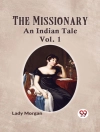Indiana is a compelling exploration of personal freedom, societal constraints, and emotional resilience within the framework of 19th-century French society. George Sand critiques the rigid structures of marriage and gender roles, examining the tensions between individual desires and societal expectations. Through the journey of Indiana, a young Creole woman trapped in an oppressive marriage, the novel delves into themes of love, independence, and the struggle against patriarchal norms.
Since its publication, Indiana has been recognized for its bold feminist undertones and psychological depth. Its portrayal of a woman's search for autonomy and self-fulfillment resonates with readers, offering a poignant critique of the limitations imposed on women in a patriarchal society. The novel's lyrical prose and introspective narrative structure contribute to its lasting impact, making it a significant work in French literature.
The novel's enduring relevance lies in its ability to address universal themes of identity, passion, and resistance against social oppression. By examining the intersections of personal longing and societal constraints, Indiana invites readers to reflect on the complexities of human relationships and the enduring pursuit of self-determination.
About the author
George Sand was a French writer and one of the most prominent literary figures of the 19th century. Born Amantine Lucile Aurore Dupin, she defied the conventions of her time, not only through her works but also through her lifestyle, which included wearing men's clothing and engaging in intellectual and political discussions that were typically reserved for men. A prolific novelist, Sand explored themes of love, social justice, and the struggles of the individual against societal norms, making her a pioneering voice in European literature.
Sand's literary career began in the early 1830s with works that combined romance, idealism, and political engagement. Her early novels, such as ‘Indiana’ (1832) and ‘Valentine’ (1832), challenged the limitations placed on women in marriage and society. Her masterpiece, ‘Consuelo’ (1842-1843), blended historical fiction with philosophical depth, showcasing her ability to weave intricate narratives with social critique.
George Sand's works and ideas were radical for her time, inspiring both admiration and controversy. She was associated with leading intellectuals and artists of the era, including Gustave Flaubert and Frédéric Chopin, with whom she had a well-documented romantic relationship. Her literary style, blending realism with romanticism, influenced later writers such as Victor Hugo and Fyodor Dostoevsky.
Her advocacy for women's rights and social justice paved the way for future feminist movements. Through her independent spirit and defiance of societal norms, she became a symbol of female empowerment and intellectual freedom.












